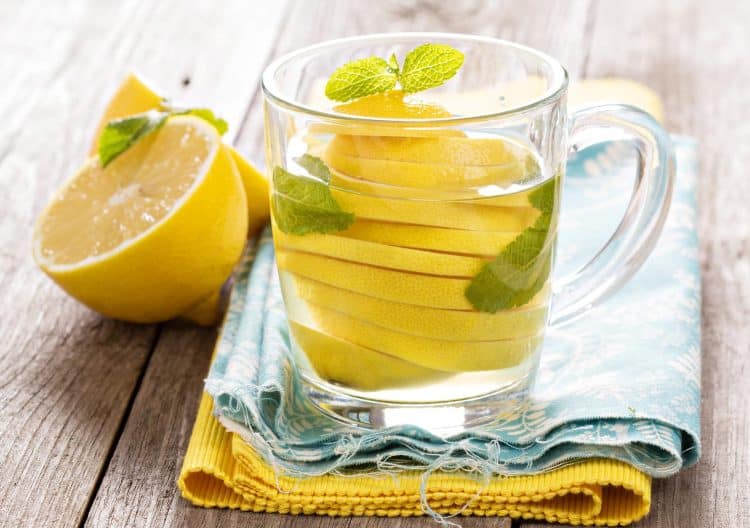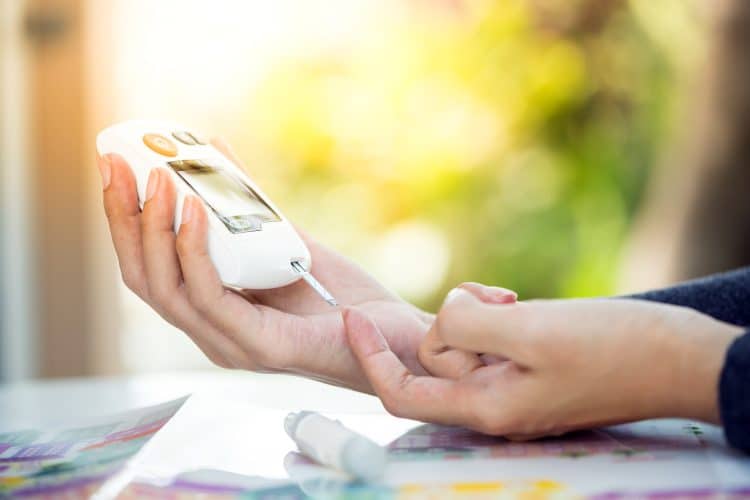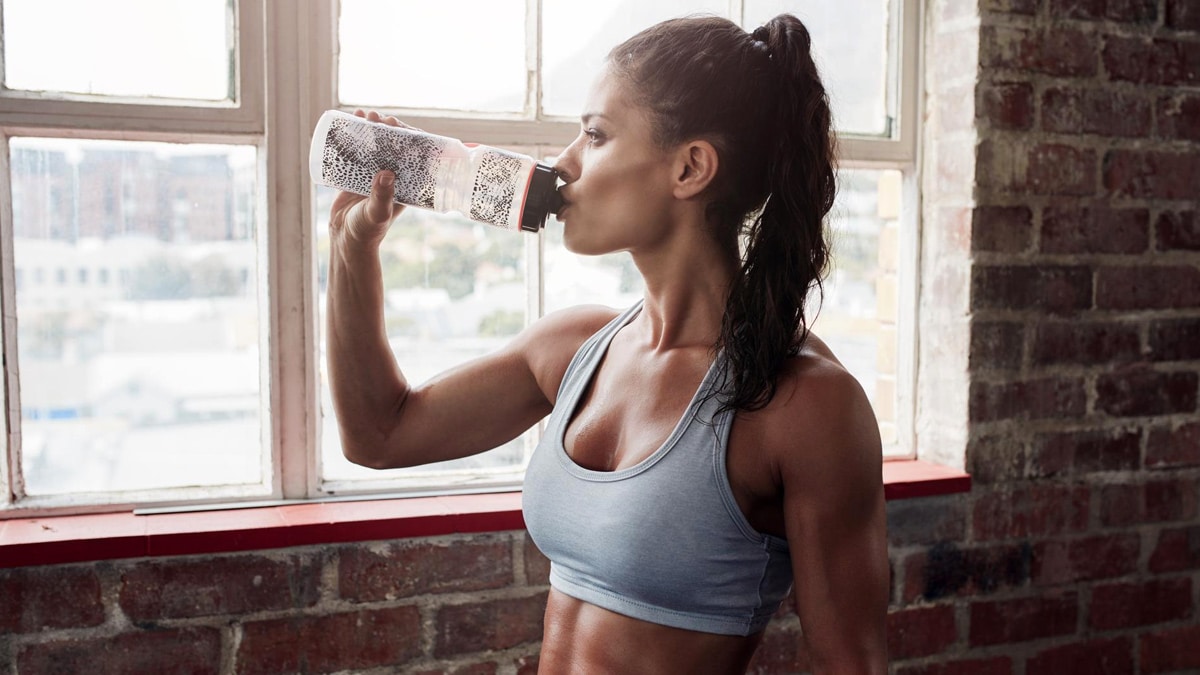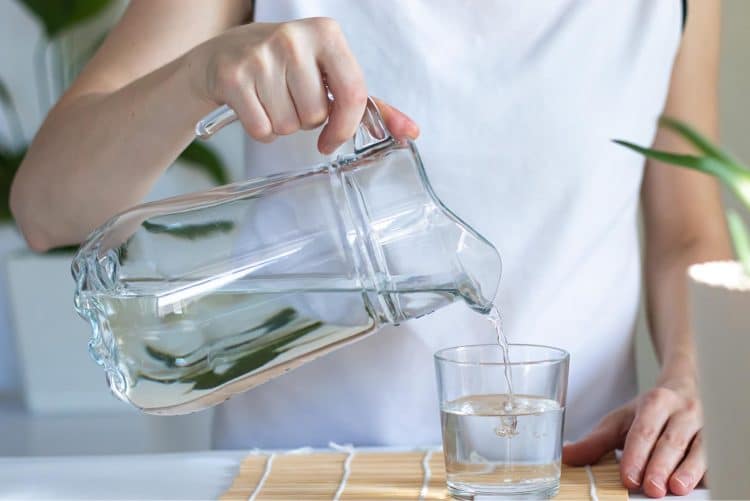In recent years, fasting has gone from being a fringe health fad to a mainstream strategy for shedding unwanted pounds and improving one’s overall health. Studies show that periodic, short-term fasts can be especially beneficial for the obese, people with diabetes, and those struggling with various health issues. [1]
You probably have also heard about medical fasting. Several medical procedures, like surgery, blood tests, etc., require some form of fasting. Even historical evidence suggests that our ancestors used fasting to cure illness.
Many people have questions about the best form of hydration during fasting. They have questions about whether they can have water or are better off without it. Can they have other beverages like coffee, tea, and so on?
This article aims to clarify these doubts and will help readers know all about drinking water while fasting.
Can You Drink Water While Fasting?
Yes, one can drink water while fasting since it is a zero-calorie drink and will not break a fast. So people practicing any fasting routine (provided it is not a dry fast) can drink water to stay hydrated during the fast.
Is Drinking Water Recommended While Intermittent Fasting?
As mentioned above, drinking water during intermittent fasting is perfectly normal and recommended. Now let us understand how intermittent fasting works and the effect of water on our body during the fasting period.
Intermittent fasting generally works on the principle of time-restricted eating, where a person can eat during a set eating window and fast for the rest of the day. By doing this, we are controlling the insulin spikes triggered by solid food. During the fasting period, our body’s insulin levels drop, and it enters a state of ketosis (breaking down stored fat) to create energy to maintain homeostasis. It helps with weight loss, cardiovascular health, and blood sugar control. [2][3]
Since water is a zero-calorie drink, it does not cause insulin spikes. Additionally, water during the intermittent fast helps the body regulate body temperature, cushion joints, and eliminate waste via urination, sweating, etc.
Should You Drink Water While Dry Fasting?
As the name suggests, dry fasting prohibits people who practice it from drinking any food or drink during the fasting period. Dry fasts, in general, are considered to be a far more advanced version of fasting, and beginners are advised against attempting them. Dry fasts are very difficult to complete and also cause several complications, such as:
- Dehydration
- Headache
- Seizures
- Kidney Failure
Although there is evidence to prove that dry fasts help lose weight, improve metabolism, and control blood pressure and sugar levels, there aren’t any over-the-top advantages that dry fasting offers. People who want to perform dry fasts must consult their doctors to avoid any health complications. [4]
What Are The Rules For Fasting Before Medical Procedures?
Doctors and other healthcare professionals often advise patients to fast before some medical procedure. In most cases, it is a dry fast, meaning the patient must abstain from food or water. The fasting duration can be anywhere from six to 12 hours before the procedure.
Now let’s understand the reason behind this.
Most surgeries require the patient to be sedated, and the doctors administer some form of anesthesia. Now, under the influence of general anesthesia, our body is in a state of paralysis. During this process, if there is any food or water in our digestive system, it can cause complications like aspiration, nausea, or bowel infections. Here is more detail:
- Aspiration: Aspiration is the condition in which food or water enters our windpipe. It is not a severe problem when awake since our body reacts to it by coughing, and the food is removed from the windpipe. But under the influence of anesthesia, the body cannot respond to aspiration, which can cause serious complications.
- Nausea and vomiting: One of the most common complications of general surgery is postoperative nausea and vomiting. It can be prevented if the patient has no food or water in their digestive system.
- Infection: Food in the gastrointestinal tract during surgery can increase the risk of infection. To avoid this, doctors suggest that patients fast before surgery.
Fast-Friendly Drinks

Let us now take a look at fast-friendly drinks. Consuming these beverages does not break a fast and can help you pass through the fasting period comfortably.
- Mineral water: Mineral water is one of the best drinks one can consume while fasting, as it helps to stay hydrated during the fasting period. Water also helps our body produce sweat and urine, which help maintain body temperature and remove waste. Additionally, mineral water contains some trace minerals required during fasting, as we lose a lot of electrolytes.
- Sparkling water: Similar to mineral water, sparkling water also contains minerals and vitamins, restoring the mineral and electrolyte deficiency during fasting. Furthermore, the refreshing taste of sparkling water can help you feel rejuvenated.
- Black coffee: Black coffee with no added cream or sugar is a zero-calorie drink, meaning it will not cause an insulin spike. Hence, people can drink black coffee to support their fast. Additionally, black coffee contains caffeine, which can boost concentration, suppress hunger pangs, and prevent lethargy during the fast.
- Tea: Like black coffee, herbal teas with no added sugar or milk contain no calories. So people who don’t drink coffee can try herbal teas to support their fast. Herbal teas, like jasmine tea, chamomile tea, etc., help prevent inflammation, relieve joint pain, and stimulate better sleep.
- Lemon water: Lemon water is another drink that can be consumed during a fast. Plain lemon water has no calories and will not break your fast. Additionally, lemon water has vitamin C, an antioxidant that fights free radicals and lowers inflammation. Also, drinking lemon water on an empty stomach can speed up weight loss as it oxidizes fat molecules.
What Drinks Should Be Avoided While Fasting?
Let’s look at all the drinks to avoid during a fast. Consuming them while fasting will cause an insulin spike and break your fast.
- Coconut water: Although coconut water contains several beneficial nutrients, electrolytes, and antioxidants, it also contains natural sugars. Consuming it while fasting will cause an insulin spike, stop ketosis, and eventually invalidate the fast.
- Diet soda: Many think diet sodas have no added sugar and are zero-calories, so people can drink them while fasting. However, diet sodas contain artificial sweeteners that can be harmful. Some artificial sweeteners do cause insulin spikes, which can invalidate the fast. Additionally, these can affect gut bacteria and cause irregular metabolism and weight gain.
- Juice: Fresh fruit juices, similar to coconut water, contain essential nutrients and vitamins that are good for health. But they also have natural fruit sugar. Hence, drinking fruit juices while fasting will break the fast as it can cause blood sugar spikes.
- Alcohol: Consuming alcohol while fasting can be very harmful, as alcohol quickly gets absorbed on an empty stomach, causing its effects to linger for longer. Also, alcohol contains carbohydrates, which can cause an insulin spike, breaking the fast.
- Almond and nut milk: Almond milk and nuts contain a fair amount of calories, so consuming them will break your fast.
Can You Drink Water While Fasting for Blood Tests?
Drinking water while fasting for blood tests is acceptable, as water will not interfere with test results. Also, drinking water and staying hydrated before a blood test is recommended as it makes it easier to draw blood.
What is Water Fasting?
Water fasting is a popular method where one abstains from all kinds of food and must only drink water for the entire fast. Most commonly, water fasts last anywhere from 24 hours to 72 hours. Water fasts lasting more than 72 hours can be detrimental to one’s health and should not be attempted [5].
Check Out: Water-Only Fasting (WF): Is It Safe?
Health Benefits of Water Fasting
Here are some potential benefits of water fasting:
1. Improves Insulin and Leptin Sensitivity
Some preliminary studies suggest that water fasting enhances insulin and leptin sensitivity. Insulin is a hormone that regulates blood sugar, and improved insulin sensitivity leads to better blood glucose regulation. Leptin is the hormone that helps us feel full. So better leptin sensitivity means we feel full for longer, which can help prevent eating disorders and obesity. [6]

2. Autophagy
Cellular autophagy is the process by which our cells consume other weak and diseased cells. These are then replaced by new and healthy cells. Some animal studies suggest that water fasting can stimulate cell autophagy, preventing diseases like cancer and Alzheimer’s. [7]
3. Lowers Blood Pressure
Some preliminary studies suggest that supervised water fasts can lower the blood pressure of obese people struggling with high blood pressure. Water fasts are also said to reduce the levels of bad LDL cholesterol, which can lead to better heart health. [8]
4. Prevents Chronic Diseases
Some animal studies suggest that water fasting can reduce free radicals in our bodies. Free radicals are unstable molecules in our body that can cause many chronic diseases like diabetes, heart disease, etc.
Frequently Asked Questions
How much water should a person drink during a fast?
Generally, one must consume anywhere between two to three liters of water during a fast to stay hydrated. You can also learn more by using our online water intake calculator.
Can I drink water when fasting for spiritual reasons?
It depends on the type of fast you take up; in strict religious fasts like Ramadan or Yom Kippur fasting, you cannot have water.
Can I drink water while fasting for a glucose test?
Yes, drinking water while fasting for a glucose test is entirely normal, as water does not affect blood glucose levels.
Can I drink water when fasting for surgery?
It depends on the type of surgery, and your doctor can guide you best. Generally, drinking water while fasting for surgery is not advisable since it can cause complications like aspiration, nausea, and vomiting.
What happens to you during a 10-day water fast?
A 10-day water fast is extremely dangerous and can cause several health complications, like muscle loss, dehydration, orthostatic hypotension, and eating disorders.
Learn more about fasting
- Anabolic Fasting: Learn About Building Muscle and Losing Fat Simultaneously
- I'm a Fasting Expert: This is the One Mistake That Destroys Fat Loss During IF
- Inflammation Calculator & Personalized Action Plan
- Dry Fasting Calculator: Estimate Your Weight Loss & Safety Risks
- Intermittent Fasting Weight Loss Calculator: Discover How Much You Can Lose
- Intermittent Fasting vs. Small Meals: Which is Best for Weight Loss?
- 8 Intermittent Fasting Mistakes Beginners Make (And How to Avoid Them)
- I Stuck to an 8-Hour Eating Window for 3 Weeks — Here’s What Happened
Conclusion
Water helps maintain optimal body functioning, and it is necessary to take care of our hydration while fasting. You must ensure that, while fasting, your average water consumption is maintained to support the fast and prevent complications. It is recommended to have water while fasting, but if you are dry fasting, you should avoid it.
References
Fitness Volt is committed to providing our readers with science-based information. We use only credible and peer-reviewed sources to support the information we share in our articles.
- Anton, Stephen D., et al. “Flipping the Metabolic Switch: Understanding and Applying Health Benefits of Fasting.” PubMed Central (PMC), 31 Oct. 2017.
- Templeman, Iain, et al. “The Role of Intermittent Fasting and Meal Timing in Weight Management and Metabolic Health | Proceedings of the Nutrition Society | Cambridge Core.” Cambridge Core, 26 Apr. 2019.
- Musharrat, Fariha, et al. “Effects of Wet and Dry Intermittent Fasting on Weight and Cardiovascular Risk Indicators | Bioresearch Communications.” Effects of Wet and Dry Intermittent Fasting on Weight and Cardiovascular Risk Indicators | Bioresearch Communications, 1 Jan. 2022, www.banglajol.info/index.php/BRC/article/view/57044.
- Mähler, Anja, et al. “Metabolic Response to Daytime Dry Fasting in BahÁ&Rsquo;Í Volunteers&Mdash; Results of a Preliminary Study.” MDPI, 29 Dec. 2021.
- Ogłodek, Ewa, and Prof. Wiesław Pilis. “Is Water-Only Fasting Safe?” PubMed Central (PMC), 5 Aug. 2021.
- “Impact of Prolonged Fasting on Insulin Secretion, Insulin Action, and Hepatic Versus Whole Body Insulin Secretion Disposition Indices in Healthy Young Males – PubMed.” PubMed, 1 Feb. 2021.
- “The Effect of Fasting or Calorie Restriction on Autophagy Induction: A Review of the Literature – PubMed.” PubMed, 1 Nov. 2018.
- Scharf, Eugene, et al. “The Effects of Prolonged Water-Only Fasting and Refeeding on Markers of Cardiometabolic Risk.” PubMed Central (PMC), 11 Mar. 2022.










